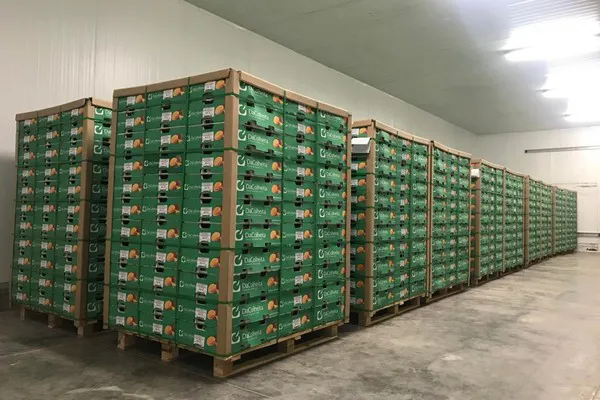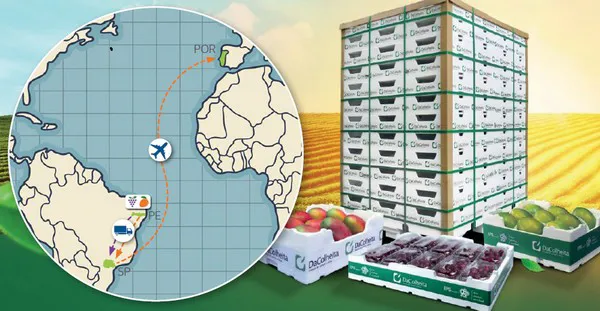Termotécnica, provider of EPS packaging in Latin America, commissioned a study carried out by the environmental consultancy Green Domus, where GHG emissions (Greenhouse Gases) were compared for the transport of loads of mangoes from Brazil to Europe, simulating a scenario in EPS conservers and pallets as well as corrugated boxes with wooden pallets.
The study was carried out with the transport of a load of mango (110 boxes) between Petrolina (PE), Viracopos Airport (SP) and Lisbon (POR), with the first stretch being overland and the second by air. In this scenario, the combined GHG emissions from land and air transport of mango in EPS packaging and pallets were 5.44 percent lower than in corrugated box and wooden pallet packaging. The difference in mango transportation was 2,492.39 tons. According to data from the SEEG (Greenhouse Gas Emission Estimation and Removal Estimation System) platform, the Brazilian's daily per capita emission is 28,25 KgCO2 e/day. Therefore, in conclusion, a reduction in CO2 equivalent to the daily activities of 88,226 people/day.

“The world and the markets are increasingly demanding about the environmental footprint of companies, and we are committed to this agenda by presenting solutions that are in line with these demands”, says the president of Termotécnica, Albano Schmidt.
FarmFresh's conservers boxes contribute in three ways:
- In post-consumer recycling as EPS is a material that can be 100% recycled and become raw material for other applications, such as baseboards and frames.
- Increased shelf-life of fresh products by up to 30%, which contributes to reducing food waste in the distribution and consumption chain.
- Contributing to the reduction of the carbon footprint, with a decrease in the emission of equivalent CO2 in transport due to the lighter weight of the solutions, dropping fuel consumption.
These conservers have benefits certified by international organizations that prove an increased shelf-life, less weight loss through dehydration, maintenance of the fresh produce vitamin content longer, in addition to ensuring an excellent visual appearance at the point-of-sale. FarmFresh solutions have wide application and can accommodate fresh produce such as grapes, mangoes, limes, figs, papaya, among others.
Termotécnica has been keeping its voluntary commitment to the circular economy in the Brazilian market by practicing reverse logistics, recycling, and reintroduction of products in new production chains since 2007. The company has also been consolidating its partnership with companies from the Global Pack Alliance, formed by dozens of suppliers that guarantee recycling of EPS packaging including Portugal, Spain, Germany, Netherlands, France, United Kingdom, and the United States.

“Thinking about the logistics chain as a whole, it is a differentiated and innovative solution for this market and that meets the requirements for responsible performance by companies in terms of sustainability”, says Albano Schmidt.
Click here to access the the company's recently released Sustainability report.
 For more information:
For more information:
Thiago Hess dos Santos
Termotécnica
Tel: +55 (47) 3451-2641
Tel: +55 (47) 99910-4876
thiago.santos@termotecnica.com.br
www.termotecnica.com.br
